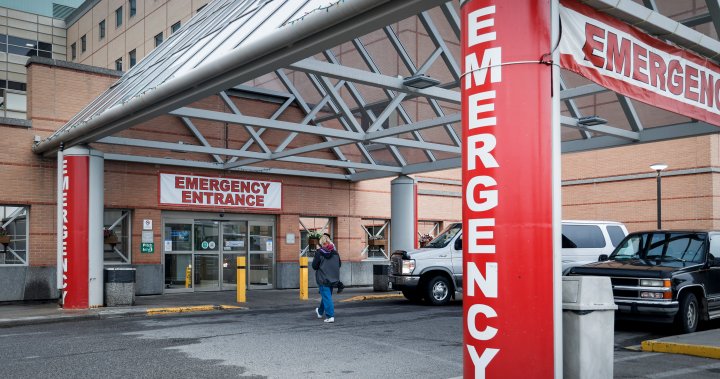Researchers at the University of Alberta have found that First Nations patients in Alberta are more likely to leave emergency departments before receiving care compared to non-Indigenous patients. The study, which analyzed provincial data from 2012 to 2017, revealed that 6.8% of First Nations patients left emergency departments before being seen, or against medical advice, while only 3.7% of non-First Nations patients did the same. Lead author Patrick McLane suggests that anti-Indigenous racism plays a role in this disparity, as interviews conducted with First Nations individuals reported experiencing stereotypical questions about substance use, racist comments, and feeling as though they were made to wait longer for care.
After controlling for variables such as other patient demographics, geography, or type of diagnosis, the researchers found that First Nations status was the only apparent explanation for the difference in emergency department utilization. McLane believes that the findings from this study are likely applicable to emergency department visits across Canada, not just in Alberta. The study, published in the Canadian Medical Association Journal, sheds light on the systemic issues faced by Indigenous individuals within the healthcare system and highlights the need for further research and policy changes to address these disparities.
The experiences reported by First Nations individuals in the study include feeling discriminated against, being subject to racist comments, and facing longer wait times compared to non-Indigenous patients. These findings suggest that systemic racism within the healthcare system contributes to the disparities in access to care and utilization of emergency services experienced by Indigenous populations. The study emphasizes the importance of addressing these issues to ensure equitable and culturally sensitive healthcare for all Canadians, regardless of their background.
The study’s findings point to a need for greater awareness and education among healthcare providers to address anti-Indigenous racism and discrimination in emergency departments. By acknowledging and addressing these issues, healthcare professionals can work towards creating a more inclusive and welcoming environment for Indigenous patients seeking care. Additionally, policy changes and cultural sensitivity training within healthcare settings can help to mitigate the impact of systemic racism on patient outcomes and ensure that all individuals have equal access to quality care.
Moving forward, it is essential for healthcare organizations and policymakers to prioritize addressing the systemic issues identified in this study to improve healthcare outcomes for First Nations patients and other marginalized populations. By implementing strategies to combat racism and discrimination within the healthcare system, significant progress can be made towards achieving health equity for all Canadians. The study’s publication in a respected medical journal highlights the importance of raising awareness about these issues and advocating for changes that promote equitable and culturally sensitive care for all individuals, regardless of their background.
In conclusion, the study conducted by researchers at the University of Alberta underscores the need for action to address anti-Indigenous racism and discrimination within the healthcare system. The disparities in emergency department utilization highlighted in the study point to systemic issues that must be rectified to ensure equitable access to care for all Canadians. By understanding the experiences of marginalized populations within the healthcare system and implementing changes to promote inclusivity and cultural sensitivity, healthcare providers and policymakers can work towards achieving health equity and improving outcomes for all patients.


